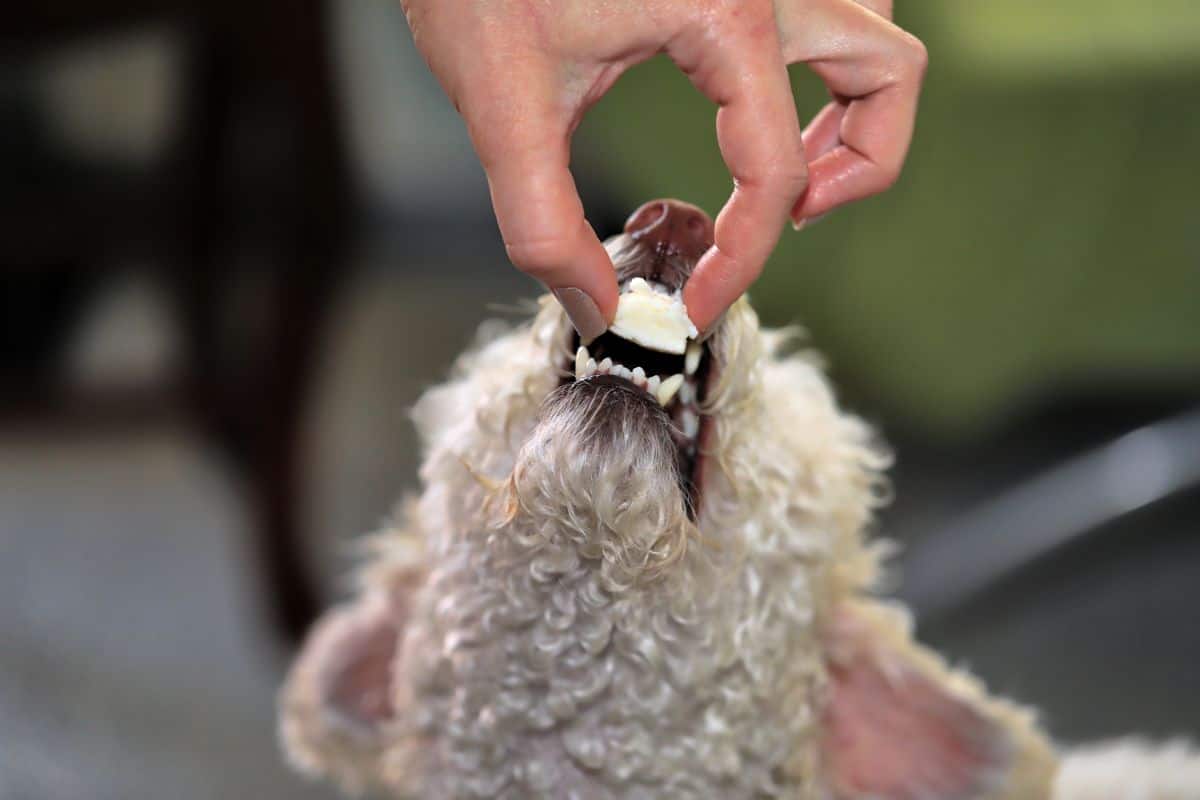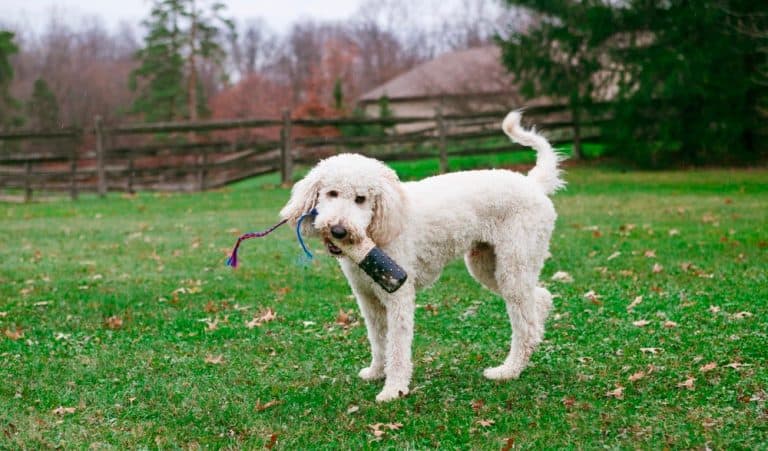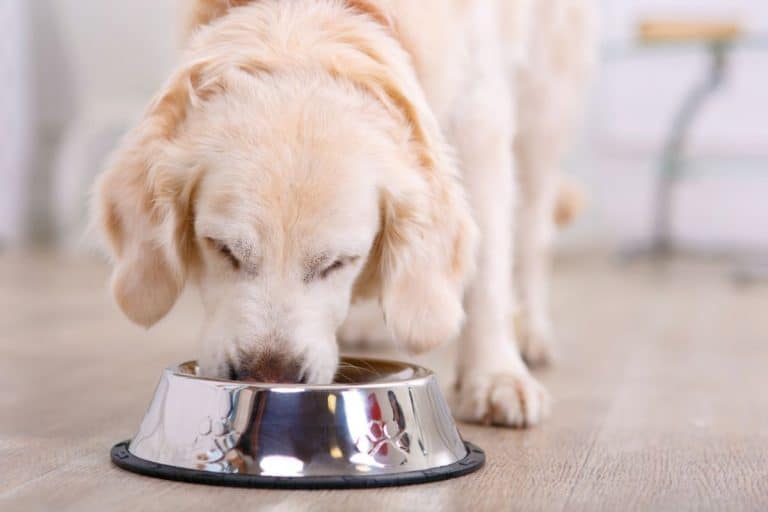Is String Cheese Safe For Dogs To Eat?
There is often a lot of discussion around what foods dogs can and cannot eat but often these discussions are not led by actual facts and are more so focused on fear-mongering facts that seem to spread through the world of dog owners.
In this guide, we look at whether it is safe for dogs to eat string cheese, or cheese or any kind.
Are Cheese Strings Bad For Dogs?
The simple answer as to whether or not dogs can eat string cheese is yes, however they should be eaten in moderation. If your dog however is lactose intolerant then you should avoid feeding your dog cheese strings.
String cheese should be a tasty treat rather than a core part of your dog’s daily diet. They are completely safe to feed dogs in small quantities. String cheese is similar to other plain cheeses, such as cheddar or mozzarella, but they are more processed.
String cheese is made from both mozzarella and cheddar cheese, depending on the flavor you buy. To make them mozzarella is stretched thin until it can be separated into thin ropes rather than rolling into a mozzarella ball.
There are no additional chemicals as the distinct shape and texture of this product are achieved naturally.
Some brands do add unnecessary ingredients and so it is important to check ingredients before feeding a cheese string to your dog.
Dogs that are lactose intolerant would show symptoms after eating cheese. Symptoms include diarrhea, bloating, and gas. If you suspect your dog may be lactose intolerant you should seek advice and diagnosis from your dog’s veterinarian.
As long as you are feeding your dog a small amount of string cheese then it is perfectly safe for most dogs to eat.
Is Eating String Cheese Beneficial For Dogs?
The benefits of eating cheese for dogs in small amounts are similar to the health benefits for humans. String cheese contains many nutrients, including vitamins A and B12, calcium, healthy fats, and proteins. All of these nutrients will be beneficial to your dog’s health.
The most common reason for feeding a dog cheese is that it is the perfect food to hide medication. To do this simply peel back a small piece of the string cheese and wrap this around the pill or chewy capsule medication.
The dog will not notice the medication and it is a great fuss-free way of ensuring your dog takes its medication every day.
As string cheese should be eaten in moderation you could not use this trick more than twice a day, unless you are peeling off small segments of the string cheese in which case the dog would still only be consuming one over the day.
How Much String Cheese A Dog Can Eat?
The amount of cheese that a dog can safely eat varies and is influenced by several factors, including your dog’s activity level, age, size, and weight. Cheese, in the case of any dog, should always be a treat and not a core part of a dog’s diet.
Dog treats should not account for more than 10% of a dog’s daily calories. Your veterinarian will be able to determine how many calories per day your dog should be eating if you are not sure.
The number of calories in string cheese will be displayed on the packaging which can make it easier to understand how much your dog can eat.
Most string cheese is approximately 80 calories so for most adult dogs no more than two sticks can be consumed per day if a dog does not have any other treats.
What To Do If A Dog Eats Too Much String Cheese?
The most important thing to remember in this situation is that string cheese is not toxic for dogs and so your dog will not suffer from toxicity or from any long-lasting effects from eating too much string cheese.
Your dog may be sick which of course will bring your dog discomfort but the next steps would be to give your dog plenty of water and to avoid string cheese for some time.
Some owners may wish to induce vomiting but as cheese is not toxic or poisonous this is not necessary and it would require visiting your veterinarian. If your dog has already digested the string cheese, inducing vomiting will make your dog extremely uncomfortable.
Should your dog manage to break into the string cheese and eat too many then the best thing to do is keep an eye on your pet so you can notice immediately should any more serious symptoms begin.
You can expect that even if your dog does not vomit it is likely that they will have an upset stomach which could make your dog sluggish, gassy, and bloated which can be uncomfortable. The dog will most likely also experience diarrhea.
While your dog’s stomach is upset it will not want to eat but you should prepare a simple bowl of white rice and boiled chicken to help your dog’s digestive system get back on track.
Also make sure your dog is drinking plenty of water, particularly if they have vomited or are suffering from diarrhea.

String Cheese Alternatives For Dogs
As this article focuses primarily on the safety of string cheese for dogs you may be questioning whether other cheeses are also safe to feed dogs.
Another common type of cheese that dog owners tend to give as a treat, or as a way to hide medication, is Cheez Whiz. The consistency of this type of cheese is safe for dogs unless your pet is lactose intolerant. Cheez Whiz will also occupy a dog for longer than a string cheese would also.
If you are feeding your pet Cheez Whiz you should follow the same guidelines as when you are feeding your pet cheese strings. Cheez Whiz should only be given in small amounts and not very frequently. Cheez Whiz is more processed and is also less healthy than cheese sticks.
If you want another choice other than Cheez Whiz the reputable dog toy brand, KONG, makes a cheese product that is specially designed for dogs to sniff out and enjoy when using their activity toys, which is called KONG Bacon and Cheese Easy Treat..
This KONG product is very similar to Cheez Whiz aside from the fact that it is specially formulated for dogs to eat. The canister is easy to use which makes filling the KONG activity toys very simple.
Real cheese, such as cheese strings or plain cheddar cheese, will be your best bet as you know how it is created and it is sure to be safe for your dog to consume, again unless your dog is lactose intolerant.
Final Thoughts
The bottom line is that yes, as long as your dog is not lactose intolerant small amounts of string cheese are safe for dogs to eat. If your dog is overweight you should however avoid feeding it string cheese due to the high fat, lactose, and calorie content in this food.
Only certain other cheese products aside from cheese strings are safe for dogs and you should speak to your veterinarian to get specific information related to other types of cheese.






